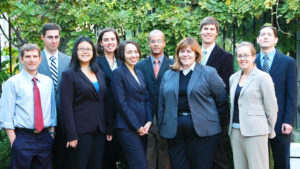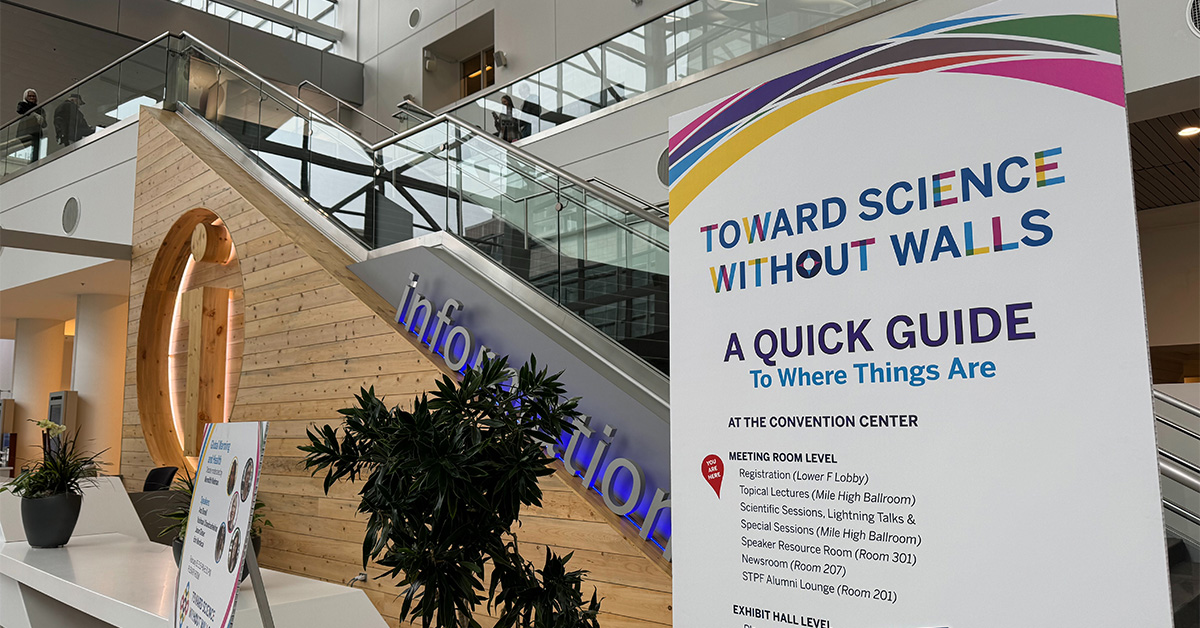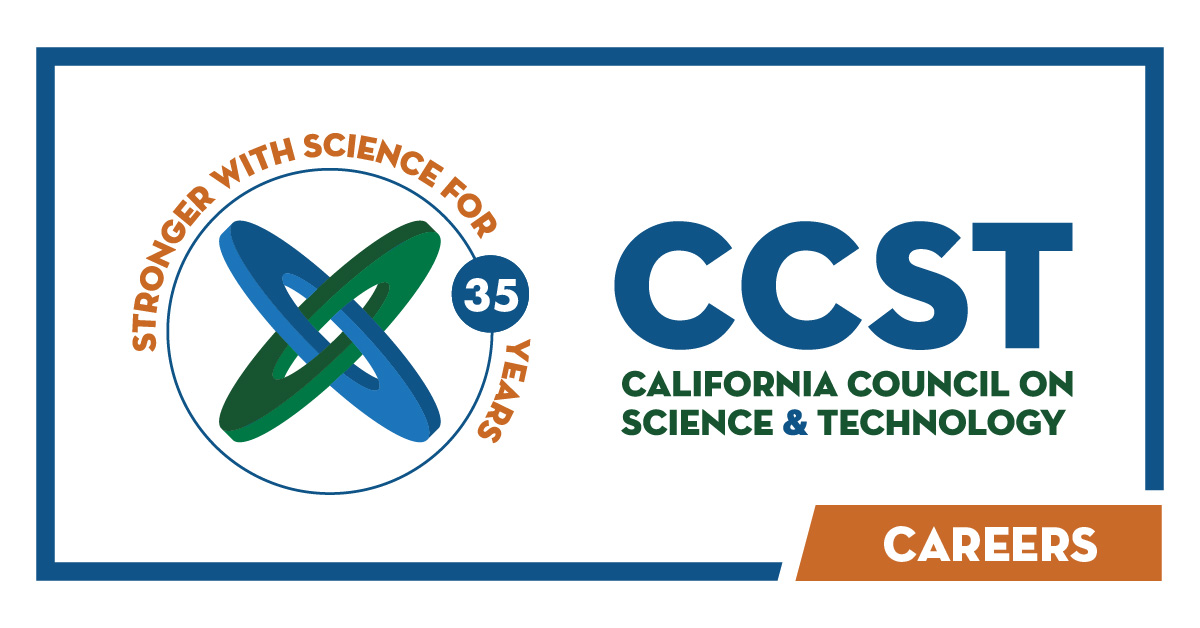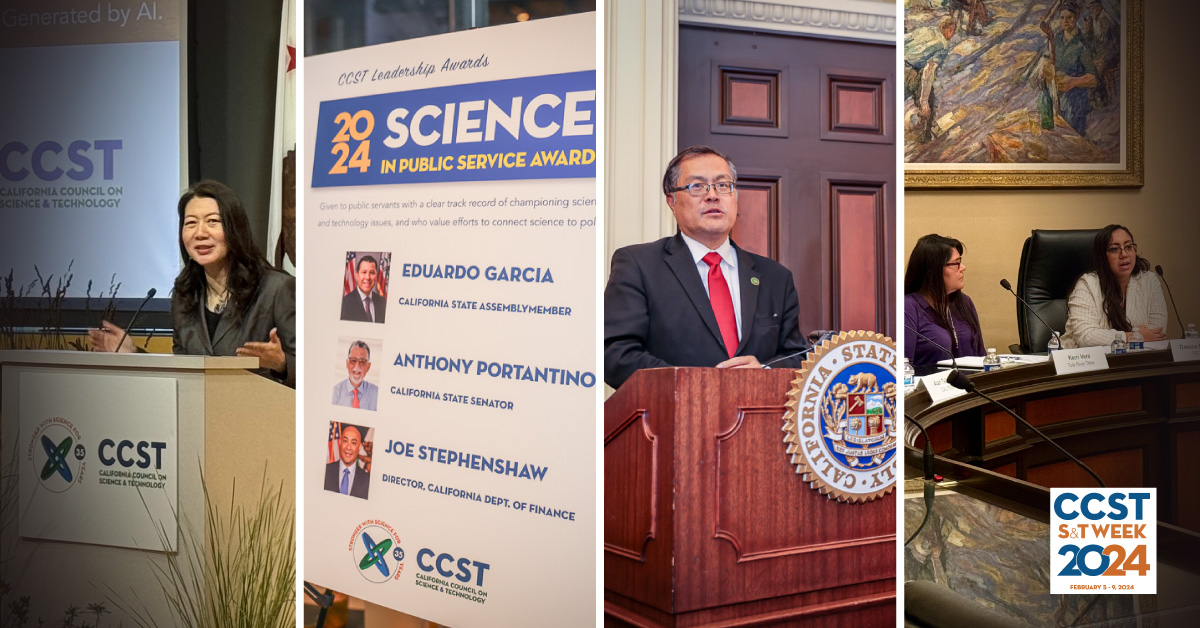CCST Places First California Science and Technology Fellows
January 4, 2010 | CCST S&T Policy Fellows, Press Releases | Contact: M. Daniel DeCillis
The California Council on Science and Technology has awarded the first California Science and Technology Policy Fellowships, placing 10 science and technology advisors to serve one-year terms in the California State Legislature.
“CCST’s S&T Fellows Program is an exciting opportunity for both the fellows and the state legislators they will support,” said CCST Council Vice Chair Mim John. “Throughout its history, California has been a world leader in scientific and technical innovation. The fellows will serve a pivotal role in helping both the Senate and Assembly ensure that state policy helps maintain that leadership.”
Recruited nationally, the Fellows will assist legislators in formulating and evaluating science and technology policy for California. Areas of consultation could include legislation related to pressing issues and challenges, such as healthcare, bioethics, energy and water resource management. The program, adapted for California from the 36-year old American Association for the Advancement of Science (AAAS) Congressional Science and Technology Fellowship program, is the first in the nation to place PhD-level scientists and engineers in a state legislature.
The Fellows and their placements are as follows:
- Maurice Pitesky, with the Senate Energy, Utilities & Communications Committee. Pitesky received his Masters of Preventative Veterinary Medicine degree at the University of California, Davis. He also received a Doctorate in Veterinary Medicine (DVM) from UC Davis, a M.S. in agriculture from Cal Poly, San Luis Obispo, and a B.S. in biology from the University of California, Los Angeles. He previously served as a veterinarian with a focus in epidemiology and biostatistics, and has a background in agricultural sustainability, food systems, and the environment.
- Amber Laura Hartman, with the Senate Environmental Quality Committee. Hartman received a Ph.D. in biology from The Johns Hopkins University and a B.S. in biology from Davidson College. Recently, she was a graduate researcher at the Genome Center, University of California, Davis, where she has also held teaching assistance and lecturer positions. She is also fluent in Spanish.
- Janice Tsai, with the Senate Majority Leader Dean Florez’s Office:. Tsai received her Ph.D. in engineering and public policy from Carnegie Mellon University. Her educational background also includes a Master of Library and Information Science, Rutgers, and a B.A. in mathematical methods in the social sciences, Northwestern University. The recent focus of her research was in the areas of salient privacy and decision-making, and the impact of privacy concerns on the adoption of mobile-location sharing technologies.
- Katharine Moore, with the Senate Natural Resources and Water Committee. Moore received a Ph.D. in atmospheric science from Colorado State University, a M.S. in environmental engineering from the University of California, Berkeley and a B.S. in mechanical engineering from the Massachusetts Institute of Technology. Previously, she was a research assistant professor at the University of Southern California Department of Civil and Environmental Engineering.
- Amber Wright, with the Senate Office of Research. Wright received her Ph.D. in population biology from the University of California, Davis. She received a M.A. in conservation biology from Columbia University and a B.S. in biological sciences (cum laude) from Cornell University. She recently served as a graduate student researcher at the University of California, Davis, and she has also held teaching assistant positions at UC Davis and Columbia University.
- Ryan McCarthy, with Assemblymember Wilmer Amina Carter. McCarthy received his Ph.D. in civil and environmental engineering from UC Davis. He received a M.S. in civil and environmental engineering from UC Davis and a B.S. (cum laude) in structural engineering from UC San Diego. He previously served as a graduate researcher in the Sustainable Transportation Energy Pathways (STEPS) Program at the University of California, Davis.
- Byron Kennedy, with Assemblymember Sandré Swanson. Kennedy received a M.D. and Ph.D. in chronic disease epidemiology, and a M.P.H. in chronic disease epidemiology from Yale University. He also received a B.S. in biological sciences from California State University, Sacramento. He has an active medical license in both California and New York. He completed his residency in preventive medicine and previously served as a public health medical officer at the California Department of Public Health.
- Jessica Westbrook, with the Assembly Natural Resources Committee. Westbrook received her Ph.D. from the Department of Horticulture at Cornell University with a minor in plant biology, and a B.S. in plant biology at the University of California, Davis. She recently served as a graduate research assistant at Cornell University in the Department of Horticulture.
- Igor Lacan, with the Assembly Water, Parks & Wildlife Committee. Lacan received a Ph.D. in urban ecology, a M.S. in aquatic ecology, and a B.S. in ecology from the University of California, Berkeley. He is an ecologist specializing in sustainable environmental management of urban areas.
- Daniel R. Ballon, with the Assembly Minority Leader/Republican Caucus. Ballon received a Ph.D. in molecular and cell biology from the University of California, Berkeley, and a B.A. in molecular biology and biochemistry, Russian language and literature from Wesleyan University. He previously served as a senior policy fellow, technology studies at the Pacific Research Institute for Public Policy in San Francisco.
Selected fellows are required to relocate to Sacramento and attend mandatory training period covering the Legislative process, effective translation of science for policy makers, and tips for success in the Legislative environment.
Funding for the Fellowships is provided by: the Gordon and Betty Moore Foundation; Stephen Bechtel Fund/S.D. Bechtel Jr. Foundation; Kingfisher Foundation; The Heising-Simons Foundation; TOSA Foundation, and the Gen-Probe Fund.
“We are most grateful to the several granting institutions underwriting the program,” added John. “Their foresight and commitment to California’s future are making the program possible at the levels of quality and scale to be successful.”
Recruiting is now underway to fill 10 fellowships for 2011. CCST will accept applications until February 12, 2010.







